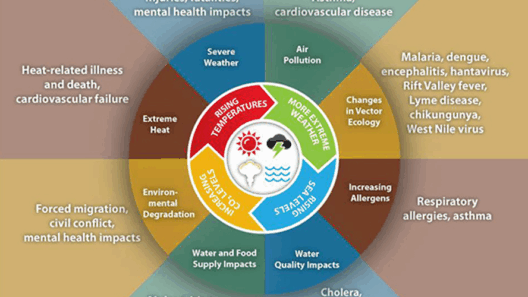In a world increasingly aware of the complexities surrounding climate change, many individuals find themselves pondering the question: how can I contribute to this critical cause? The complexity of climate change can seem daunting, but small, effective actions can exude profound impacts when adopted collectively. The history of environmental movements reveals that action and awareness often emerge from simple yet powerful decisions made on a personal level. Below are a variety of easy actions that anyone can implement today to help combat this pressing global issue.
Understanding the urgency of the climate crisis is paramount. As the global temperature rises due to greenhouse gas emissions, the consequences alter weather patterns, elevate sea levels, and threaten biodiversity. Acknowledging these facts can motivate individuals to take steps that are not only beneficial for the planet but also invigorate communities through collective responsibility.
Here is how you can take action today:
Transform Your Transportation Choices
Transportation is one of the largest contributors to greenhouse gas emissions. By reevaluating how we travel, we can have a significant influence on our carbon footprint. Consider alternatives to single-occupancy vehicles such as public transportation, cycling, or walking. Not only do these options minimize pollution, but they also promote healthier lifestyles and foster a sense of community.
Carpooling is another excellent strategy that reduces the number of vehicles on the road. Additionally, if feasible, consider investing in an electric or hybrid vehicle. Though the initial cost may be higher, the long-term savings on fuel and maintenance, combined with available tax incentives, often outweigh the upfront expenses.
Lastly, embrace the beauty of local travel. Instead of jet-setting around the globe, explore the natural wonders and cultural gems in your own backyard. This not only cuts down on emissions but also supports local economies and preserves the unique aspects of your community.
Minimize Waste and Embrace Sustainability
Another impactful action involves rethinking consumption patterns and waste production. The mantra “reduce, reuse, recycle” should guide your everyday decisions. Start by assessing your habits: are you utilizing reusable bags, water bottles, and containers? These seemingly small adjustments can lead to substantial drops in plastic waste.
Moreover, composting organic waste can minimize landfill contributions and enrich local soil. Engaging in composting not only benefits the environment, but it also educates individuals about the importance of organic material recycling. Consider starting a composting routine at home or participating in a community composting initiative.
Contributing to the circular economy is also vitally important. Choose to purchase second-hand goods, or if you have items you no longer need, donate them or sell them directly to new users. This extends the life cycle of products and reduces the demand for new resources, which often leads to increased competitive extraction of raw materials.
Support Renewable Energy Sources
A shift from fossil fuels to renewable energy sources such as solar, wind, and hydro plays a significant role in combating climate change. While larger-scale changes are primarily carried out by corporations and governments, consumers still have avenues open to support this shift.
One immediate step is to inquire about the energy sources for your home. Many utility companies now provide options to purchase renewable energy or offset carbon emissions linked to their services. If possible, look into installing solar panels on your property—though some may find the initial investment prohibitive, various financing options and incentives are available that make this more feasible.
In addition to leveraging energy sources at home, consider supporting companies and products that prioritize sustainability. Research brands dedicated to sustainable practices and environmentally-friendly initiatives. By doing so, consumers not only make informed purchasing decisions but also advocate for businesses that align with eco-conscious values.
Advocate for Change and Educate Others
Taking individual action is crucial, but the power of advocacy cannot be underestimated. Engaging with local political processes by voting for climate-conscious candidates, attending town hall meetings, and joining local environmental groups can amplify the impact of personal actions. Mobilizing your community through awareness campaigns and educational outreach further fosters a collective understanding of climate change.
Sharing knowledge about climate change and its solutions is an essential part of activism. Whether through informal conversations with friends, social media platforms, or community workshops, spreading awareness builds momentum for change. Knowledge empowers individuals to reconsider their own contributions and enables them to incite action in others.
Involve the Next Generation
The youth hold the keys to a sustainable future, and engaging children and young adults in environmental stewardship is critical. Initiating educational programs focused on sustainability, environmental science, and active participation in conservation efforts promotes a culture of responsibility. Encourage young minds to participate in community clean-ups, tree-planting events, or visits to local nature reserves, instilling in them the importance of preserving natural resources.
By intertwining these actions into daily life, individuals effectively plant the seeds of change. The path to a sustainable future may begin with one step, but as more people embrace these ideas, the movement toward mitigating climate change can gain powerful momentum. In the end, meaningful action arises from a combination of personal commitment, community involvement, and sustained advocacy, ultimately leading to the collective improvements that the planet so desperately needs.






